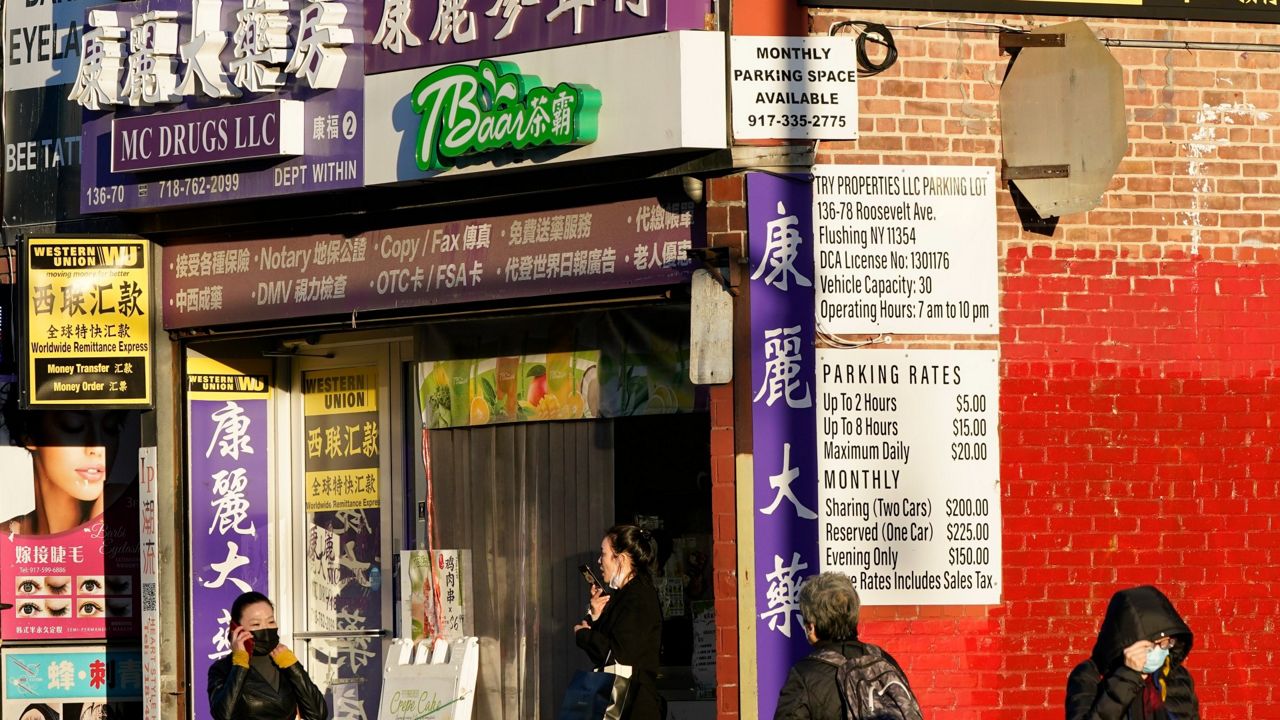Asian-owned businesses faced systemic roadblocks in obtaining governmental assistance during the pandemic, according to a new report by the Asian American Federation.
Before the explosion of coronavirus infections, Asian-owned businesses, largely in food services, personal and laundry services, retail and garment manufacturing, were one of the fastest growing sectors of the economy.
Asian-owned non-employer businesses, where the owner does not employ staff, grew by 31% between 2012 and 2017 from 224,811 to 295,000. This growth was the highest of all other major racial groups, according to the study, which was released earlier this month
The number of Asian-owned employer businesses, or businesses with a staff on payroll, went from 74,453 to 84,753, the second highest growth rate among major racial groups in the city.
Yet despite efforts by lawmakers to get relief dollars into the U.S. economy, Asian businesses across the city reported difficulties in obtaining assistance.
In Flushing, there were 913 Paycheck Protection Program, or PPP, loans granted to its 2,381 qualified businesses in 2020, a rate of 38.3%, according to a report by Renthop, which was cited in the Asian American Federation study. In comparison, Greenpoint, a quickly gentrifying neighborhood in Brooklyn, received more than double the rate of PPP loans, at 78.2%.
Researchers say this comes down to unequal wealth across neighborhoods and the lack of long-standing relationship with banks for many Asian-owned businesses.
“They are usually underbanked, so compared to the more affluent communities, they didn't have a strong relationship with the banks,” Linying He, associate director of research at Asian American Federation, said. “If you had a good relationship with the banks to start with, it’s just easier for you to apply for the loan.”
Reliance on paper-based bookkeeping also made furnishing the extensive documentation required by the application process, including bank and credit card statements, a huge obstacle, researchers said.
Ka Wah Bakery in Chinatown, which has been family-owned for 40 years, faced this issue.
“We’re not qualified — we have nothing on the books,” Jimmy Chan, who operates the bakery with just one part-time baker, said. “Because you didn't make anything on the book, we're just hanging until the last day that the landlord throw us out.”
Chan said since the bakery was cash-based and relied on paper bookkeeping, it would've been too difficult applying for a PPP loan.
The more pressing issue for Chan is the lease payments on the bakery. He said the business owes the landlord $150,000 in overdue rent.
While the Paycheck Protection Program provided relief around payroll, many Asian-businesses, like Chan's, reported needing relief around other issues such as rent.
“For small businesses without employees, that's not their priority,” He said about payroll protection. “From what we heard, [the issue] is actually paying the rent. But if your priority is rent, you are not prioritized for being approved for the PPP loans.”
The report lists policy recommendations to aid Asian-owned businesses, including workforce development opportunities and expanding in-language materials beyond Chinese and Korean.
“We do need all those documents to provide in-language [materials], at least by borough—decide what are the top languages spoken there, and provide those documents in- language in each borough,” He said.
Researchers also urge lawmakers to provide relief beyond paycheck protection.
“There can be PPP loans that prioritize paychecks, but there should be also other programs that realize a lot of business owners are burdened by rent,” He said.




